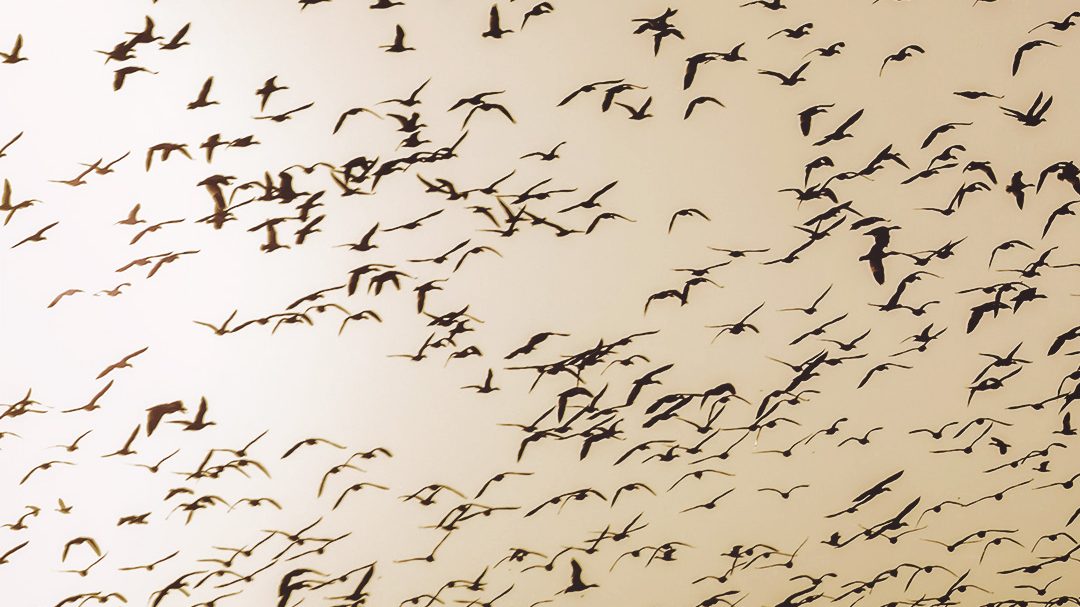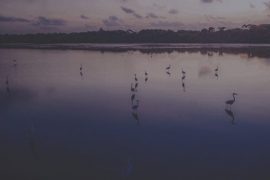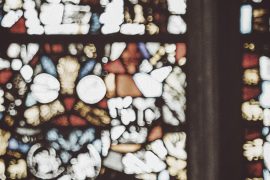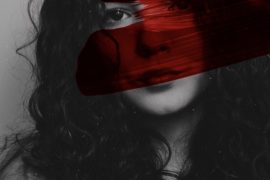These hospitals are cemeteries with walls. Don’t move me. Don’t take me. If our lives were eternal, there would be no sense in living. How could the worth of a life be measured? We exchange them for beads and copper. Barter them for the gold dust that once lined the rivers now flowing in reverse.
Have you ever seen water that is scared? Sacred and scarred? If the body’s composition is two-thirds water, we’re more than halfway knowledgeable of the ritual of drowning. Drowning while awake, drowning while in prayer— drowning the poison of cassava into the streams and tributaries of an infant to protect them from having to face yet another pillaged body of water.
You talk about water and baptism as if you know what roots are; I have never seen you look at any of these trees as if they were God. As if they were elders. Timekeepers. Prophets. Parents. There’s a page of poetry that I wrote when I was young: take it out of my shirt pocket. I’m not going to the hospital. Unfold it delicately. I only had ceiba leaves and hummingbird wings as my parchment. Do not show it to me— of all of the things I don’t remember, the lines of this poem and the silhouette of your grandmother are neither of them. Poets are mirrors that speak: allow me to hold my shards to the sun for a final time:
I was born from the roots, vines, and salamanders,
the ocean that carved its scriptures onto my tongue,
and the light of sun, shattered into a thousand birds,
a thousand memories—and somewhere a tree
no longer grows.
And somewhere there is a land
where the oceans are not tombs,
and somewhere there are islands
where the flames no longer walk.
From my throat rises the horizon,
with every shard and finger
clawing against the night,
against the eyelid,
against the clouds,
against the beast.
From the roots and the vines
the salamanders scatter,
taking with them once more,
into the earth,
the memories of a sleeping world.
It hurts to breathe. This sand is building in my lungs. Perhaps I’m closer to the desert than I am to an ocean. It was once written that oceans and deserts are siblings constantly waging a war. These hospitals can’t solve wars. Don’t move me. Don’t take me. A sickness has fallen upon Puerto Rico that not even the doctors and priests can heal. Collect my shards and move me underneath the manchineel— I apologize for the sand that overflows from my body. Memories are heavier than materials. I want you to remember my poem (keep my poem) as I describe the symptoms of this sickness to you. A part of me believes that it’s the closest to a tree that I will ever become. The sickness of Puerto Rico begins from the top-down:
The strongest nooses are crafted from flags. This is where it begins: a horizon of absent skulls. Dispossession of a tongue, dislocation of vertebrae. Some speculate that the original skull once upon our shoulders is buried somewhere within the central mountains— but there are too many caves and rainstorms in between the sickness and the people to devote any time for excavations. Far too many skulls are within this soil; the spaces above the noose are occupied by ghosts and coquís. This results in the key characteristic of our people: voices tinted by the past that sing the loudest of songs. Cannon blasts in the cathedral. I have seen this throughout the world. I have seen its many forms. I have spoken its many tongues. Gravity speaks a different language when you observe the world from a noose. This sickness— it moves past the skull. Past the flags.
Past the skull and past the flags: this is where the sickness is at its worst. We are now at the shoulders, the sternum, the chest, the abdomen. The limbs are of no use— their only functions are to execute the commands of the chest and the skull. This sand is becoming burdening. My left eye has gone blind. Listen to me as I tell you the symptoms; these are the conditions that not even the hospitals could have treated:
The paralysis of the imports. Metastasis of the murders. Cowardice of the presidents. And the ignorance of the governors. The paralysis was said to be onset and centralized upon the sternum once the Jones Act and Hollander Bill were injected into the cartilage. The metastasis of the murders? Mothers whose bodies were turned desolate. Children whose dreams were mutinied with a bayonet behind a police station. The metastasis? The bullet that traveled from Río Piedras to Ponce to Utuado. The metastasis? The absence of insulin, the corpses of animals in the water systems— and out of all the saints that we worship, it is now the patron saint of suicide who has been walking the most frequently throughout our municipalities at night. The cowardice of the presidents? The ignorance of the governors? Descended reflections of the same pillaged coin.
This sickness affects all, but the rain falls hardest upon us. The time between a womb and tomb is spent learning how to swim. Against floods. Against ourselves. We swim while drowning under two-thirds of our own bones, ligaments, arteries, and muscles— I feel myself becoming buried. Eternity means nothing. Take my poem. Keep it. The least we can do is become weathered wolfsbane in the wolf’s jaw. The least we can do is speak with hemlock and manchineel sap glazed across our teeth, biting into the throat of the beast right after it has gone to sleep. It’s hard to speak about any of this with only one lung. It’s hard to dream about any of this with only one body. Everything below my shoulders has become sand. This sickness is a sickness that the hospitals cannot heal. Don’t move me. Don’t take me. Slice the stems of the sugar cane— construct a cross. Place it where my sand rests. In this afternoon I feel the closest to the forests.
Rip my poem. Throw it into the wind. Atabey is coming. What are hurricanes to heartbeats? She’ll see what has become of this island. The water is scared. The water is scarred: the water is gone. For all of my life I have been told that I would become ash— yet even underneath the flames and the clouds I still return to the sea as sand. Not even this sickness can turn the boricua’s spirits to ash.
Blood of campesino, blood of Taíno, blood of Africa; blood of conquest, blood of conquered, blood of colonies; blood of Christ, blood of Atabey, blood of Borikén. Never erase your roots.
Don’t move me.
Don’t take me.
I can finally hear the coquís.
Born in San Juan, Puerto Rico, raised in Essex County, New Jersey, Poetry Reader for Muzzle Magazine, and current recipient of the Atlantis Award for Poetry, JULIO CESAR VILLEGAS is the writer that your abuelos warned you about. His scriptures can be found or are forthcoming in PANK, Rigorous Mag, Subprimal Poetry Art, Grist, Into The Void, Waccamaw, Bare Fiction, as well as the inescapable mouth of the abyss. Puerto Rico Se Levanta.
Like what you’re reading?
Get new poetry sent straight to your inbox. Drop your email below to start >>>
OR Grab a Print Issue
Stories, poems and essays in a beautifully designed magazine you can hold in your hands.
GO TO ISSUES



